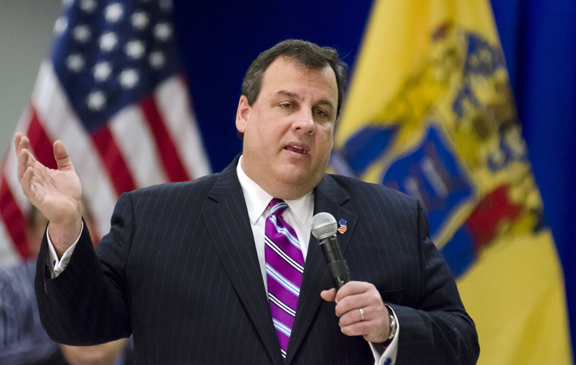
N.J. Gov. Chris Christie, shown here in 2012, apologized Thursday for the epic traffic jam at the George Washington Bridge that was instigated by his aides and appointees.
N.J. Gov. Chris Christie spent two hours Thursday presenting himself as another unknowing victim of the epic George Washington Bridge traffic jam debacle.
Sad. Humiliated. Blameless for “mistakes” made by his staff and appointees. Determined to root out those who “betrayed” him.
I was struck by the tone he set from the get-go, “taking responsibility” by firing deputy chief of staff Bridget Anne Kelly because “she lied to me.”
Lies? Mistakes? Whoa. What happened to firing Kelly for instigating and participating in #Bridgegate, the 4-day-long traffic horror show that gridlocked Ft. Lee, N.J., last September?
Was that a “mistake?” (Oops, I accidentally triggered lane closures on one of the nation’s busiest bridges. My bad! Sorry.) Or was it a sin? (Ha! Let’s gridlock Ft. Lee, where we don’t like the mayor’s politics, and ignore stranded kids, ambulance crews and commuters.)
I took the mistake vs. sin question to Robert Parham, executive director of the Baptist Center for Ethics and executive editor of EthicsDaily.com. He’s not weighing in Christie or political justice in Jersey for #Bridgegate. But he has interesting observations on the differences between an “oops” and an intentional, wrong action that harms others.
“One of the biblical definitions for sin is missing the mark. It seems to me that there is connectivity between a mistake and missing the mark,” Parham said.
But there are degrees.
“Mistakes would probably be considered problems that create no harm of the common good. If you misspell a word, in most cases that’s not going to cause profound harm or nick the public good,” said Parham.
“A sin, from a traditional Christian perspective, would be failing to do the right thing or deliberately doing the wrong thing. Intention makes a difference.” In church terms, they’re called sins of omission and sins of commission.
We all like to gloss over our errors and we do it with carefully chosen words. Just like some public officials, Parham notes, we don’t say we lied, we just “misspoke.” We want to direct attention away from our errors or bad acts.
That inclination to misdirect people is “also known as deceit. It’s a sign of human sinfulness,” said Parham. We’re human. We err. We hope for forgiveness.
As Chris Christie talked for two hours about how “mistakes were made,” do you think New Jersey-ites were moved to forgive him?
Why him and not his staff and appointees?
Politics aside (if you can), what’s your view on mistakes vs. sins?
Can we, should we, evade their consequences with fuzzy language?





